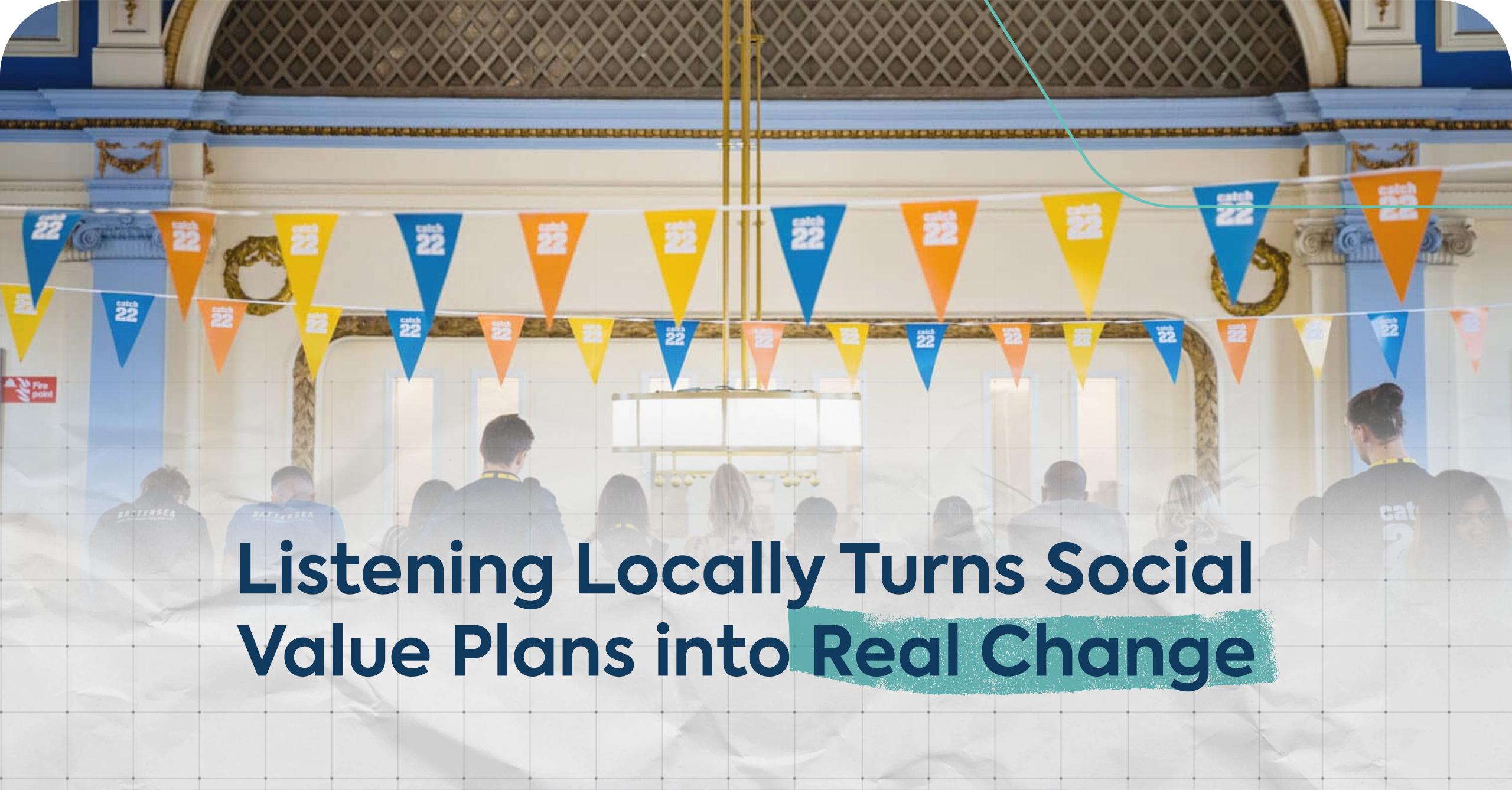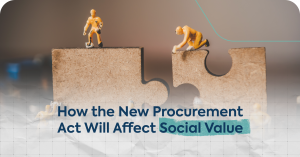As the Social Value Advisor at Procure Partnerships, there are about 150 active Social Value Plans on my desk at any given moment. And, though these can cover anything in scale from toilet refurbishments to museum builds, there are some common themes I tend to notice.
I’m a part of the process at every stage – from designing bid questions, to monitoring social value add, and verifying evidence. So I often see what works, and what could be improved.
Every plan is set with good intentions. You’d be hard pressed to find otherwise in this field. But without putting the work in from day one to establish local priorities, even a perfectly fulfilled plan may not deliver the change a community needs.
Working by the Book
A textbook mistake made in both public and private sectors is to take a blanket approach to social value – where a standard plan is established, and then “plugged in” – proportionate to each project.
This is an effective way of delivering a consistent social value return – at least, on a quantitative basis. Often, these plans will focus on common measures with large proxy values – such as local employment and procurement, or school visits. These measures are important. However, that does not mean they are the most beneficial to the local community.
But this is the essence of social value – the opportunity to create a lasting impact – socially, environmentally, and economically – beyond the purely financial outcomes. These benefits are for the communities we serve. In the scramble to deliver the greatest return on investment, perhaps we’ve lost sight of that.
This isn’t limited to one side of the equation. Whilst there are contractors who dazzle with huge proxy returns but fail to leave a mark on the community, there are significant missed opportunities for local authorities and other public bodies to steer delivery towards the real needs of their area, despite the massive potential offered by local knowledge and connections. Surely, it is the members of a community that know best how to improve it.
Getting Better
Recently, I’ve got to know Cath Forshaw and Sophie Hillier from Catch22 – a nationwide non-profit that works with the most vulnerable and voiceless young people in society – whether they are care leavers, young offenders, experiencing homelessness, struggling with substance abuse, or any number of disadvantages. This is amazing work, which I’m proud to say that some of our contractors are promoting and participating in.
Across Liverpool and Greater Manchester, Catch22 provide two particular programmes, Care Leavers into Careers (CLIC) and the (Manchester-based only) Career Hive. Well accustomed to working with local authorities and private sponsors, their mission, in effect, is to replicate the family support – logistical, financial, and emotional – that care leavers from 18-30 often lack, contributing to them being four times more likely to be unemployed than the general population. Working closely with other services such as Housing Associations and Mental Health Services, this goes well beyond the offering of your typical employment hub.
But it isn’t always an easy business to be in. Cath told me one of their biggest barriers was a lack of understanding, even when the interest is there, which has a real impact on service users. Companies would make promises they later struggled to fulfil, having not laid the groundwork to understand the staffing or commitments needed to deliver change. This can be really demoralising for the service users, and backs up what we sometimes see reflected in pieces of social value delivery. Targets set without the groundwork to back them up are usually the hardest to achieve.
To understand why this might be, it’s important to talk about what successful partnerships look like. An example given was Catch22’s work with a local council, who asked one of their regular subcontractors to ringfence four jobs for care experienced young people and directed them to CLIC. Cath and Sophie say that the secret to making a real impact is planning, communication, and clear, established goals – starting on day one. To that end, they collaborate with potential partners by ensuring they too have the support they need, not just their client.
Throughout the bid process, local authorities have a unique position in driving change. Contractors want to win bids – and it is important to make the most of this by being clear about the outcomes you expect from your winning bidder. This includes ensuring everyone is onboard with the mission and setting defined targets, which are communicated throughout the organisation. Your feedback is key when defining social value plans. It’s vital to use this opportunity as much as possible.
A Picture of Success
When it goes right, it really can go right. A recent success story from Catch22 involves a young man called Dylan who has been part of the CLIC programme since 2024. With a childhood dream to work in television, the team gave him the opportunity to enrol in an acting course, as well as visits to different work sites and a three-week employability programme with Travelodge – who, as part of their agreement with CLIC, offer guaranteed job interviews to care leavers.
Gaining confidence, Dylan continued to work with the team to prepare for new roles, with particular help from Sophie in her role as Partnerships and Communications Lead. CLIC stuck with him, acting as a practical and emotional lifeline when he became temporarily homeless earlier this year. In May, his hard work paid off and despite significant challenges, he found work through CLIC as a VIP Host at his local football stadium. Looking back, Dylan says:
“The support that Chloe and the CLIC team have given me has been unmatched. They’ve all consistently showed up for me, even when I wasn’t showing up for myself. I can’t thank CLIC enough for what they’ve done for me.”
Dylan’s success is testament to his incredible resilience and ambition. But he had the opportunity – not just from Catch22’s work, but from the organisations behind them – Travelodge and Barclays. Together, they achieved something very special: change.
Isn’t that what we all want?
Get in contact with Catch22 here: : sophie.hillier@catch-22.org.uk



